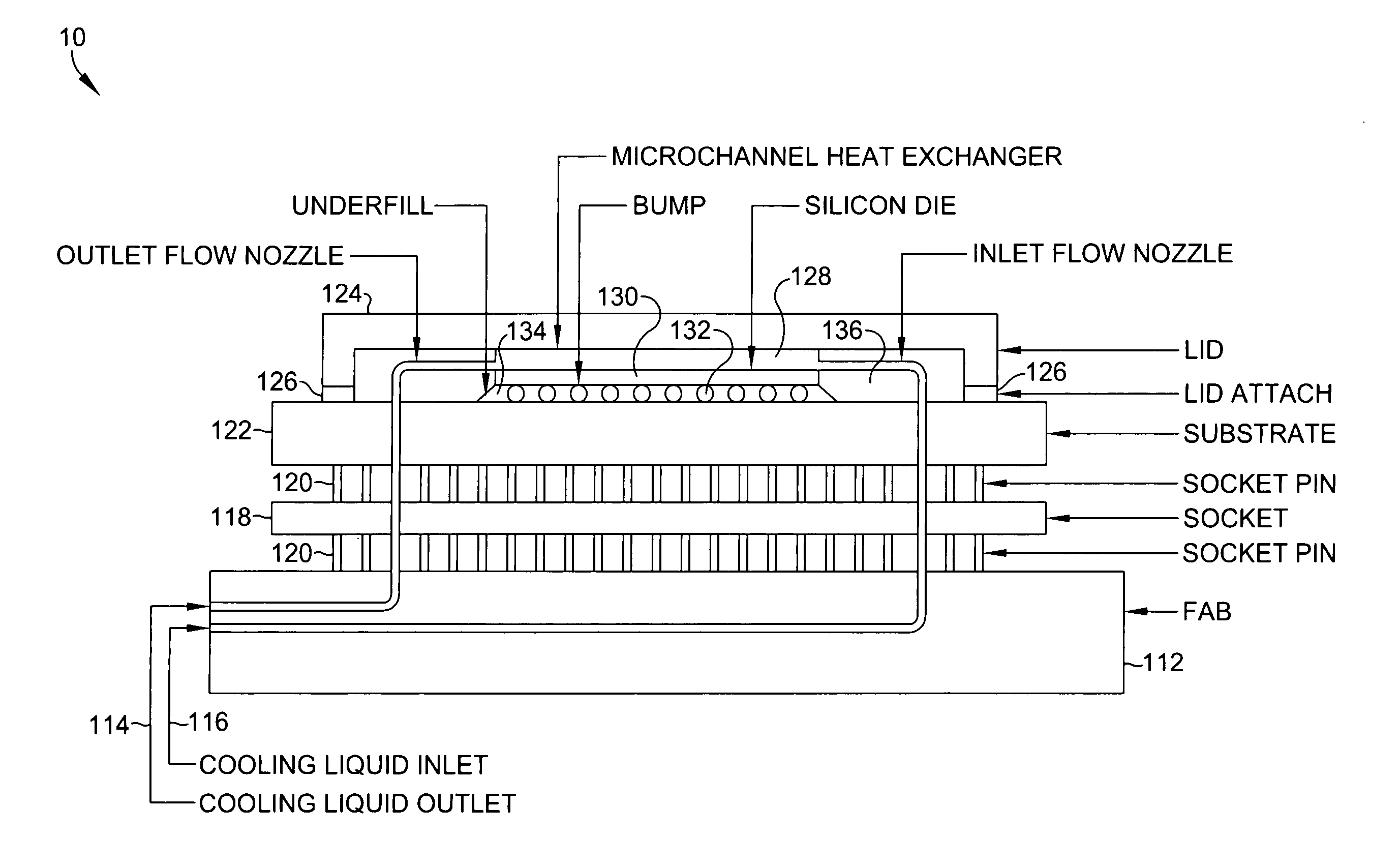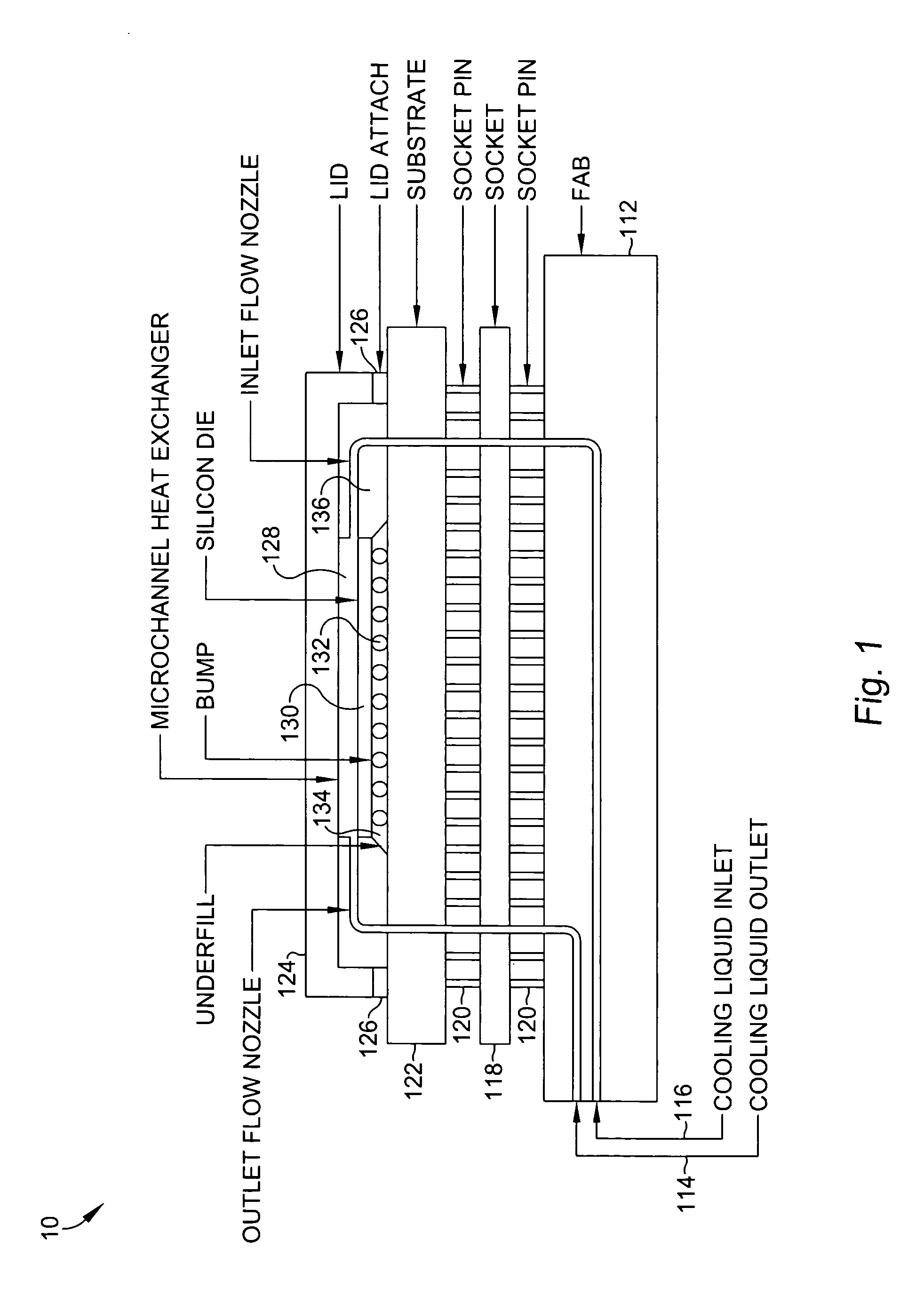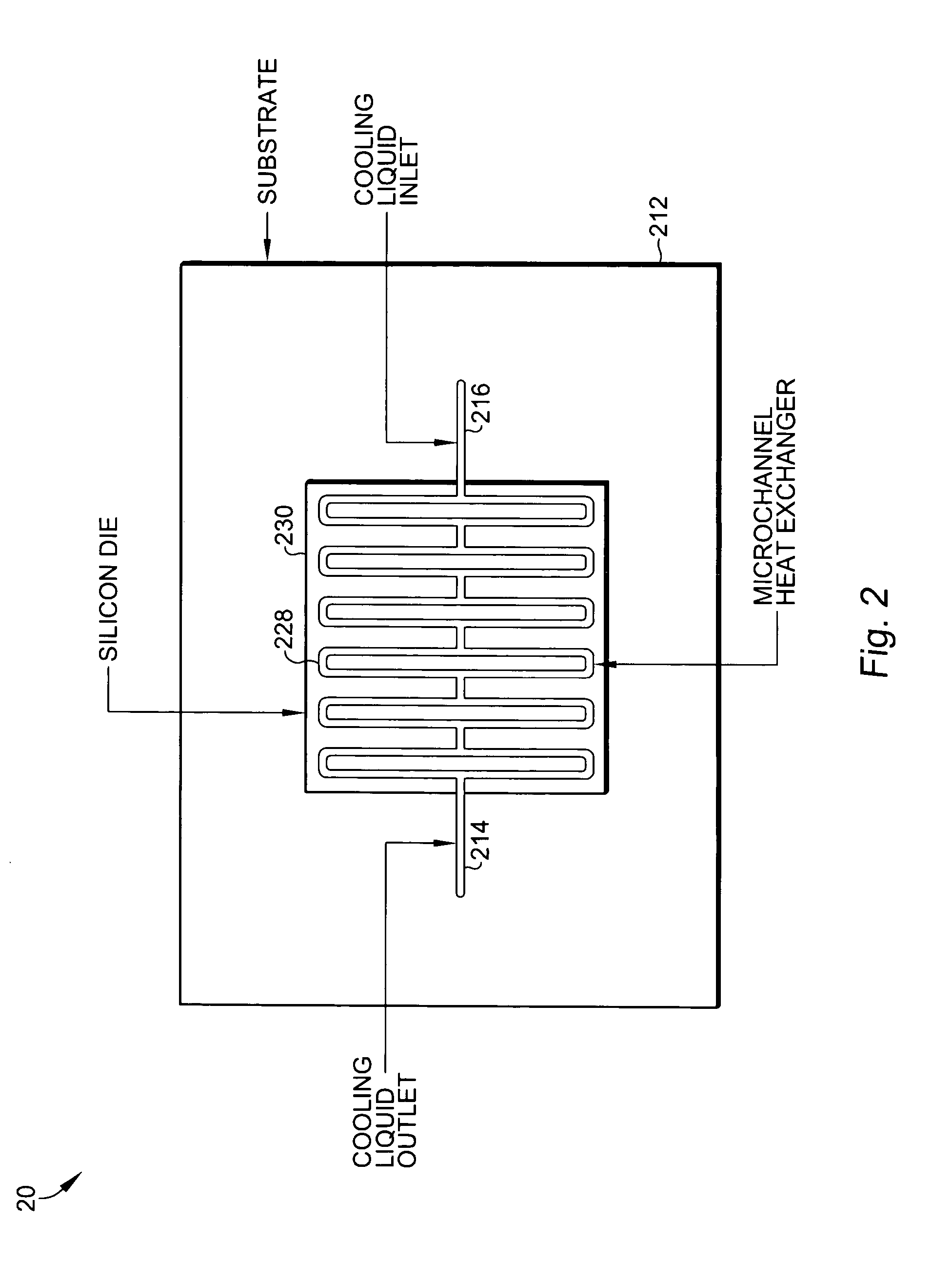Embedded microchannel cooling package for a central processor unit
a technology of central processor and cooling package, which is applied in the direction of cooling/ventilation/heating modification, semiconductor device details, semiconductor/solid-state device details, etc., can solve the problems of reducing the practical application limit, affecting the reliability of electronic systems, and unable to meet the requirements of high-power electronic components such as computer server processors. , to achieve the effect of reducing the space traditionally occupied, and reducing the cost of cooling
- Summary
- Abstract
- Description
- Claims
- Application Information
AI Technical Summary
Benefits of technology
Problems solved by technology
Method used
Image
Examples
Embodiment Construction
[0013]Referring now to FIG. 1, a cooling package assembly 10 for an integrated circuit employing indirect embedded liquid cooling includes a board or “fab”112 having a liquid coolant inlet 116 and a liquid coolant outlet 114, a socket 118 coupled to the board 112, and a package substrate 122 coupled to the socket 118. In the expanded cross-sectional view of FIG. 1,the board 112, the socket 118, and package substrate 122 are coupled together through socket pins 120. In actual usage, the board 112, the socket 118, and the package substrate 122 are in closer physical contact than is shown in FIG. 1. The expanded cross-sectional view of FIG. 1 is provided for ease of understanding the relationship of the individual components of the present invention only. A first microchannel allows liquid coolant to flow from the liquid coolant inlet 116 through the board 112, the socket 118, and the package substrate 122. A second microchannel allows liquid coolant to flow through the package substra...
PUM
 Login to View More
Login to View More Abstract
Description
Claims
Application Information
 Login to View More
Login to View More - R&D
- Intellectual Property
- Life Sciences
- Materials
- Tech Scout
- Unparalleled Data Quality
- Higher Quality Content
- 60% Fewer Hallucinations
Browse by: Latest US Patents, China's latest patents, Technical Efficacy Thesaurus, Application Domain, Technology Topic, Popular Technical Reports.
© 2025 PatSnap. All rights reserved.Legal|Privacy policy|Modern Slavery Act Transparency Statement|Sitemap|About US| Contact US: help@patsnap.com



